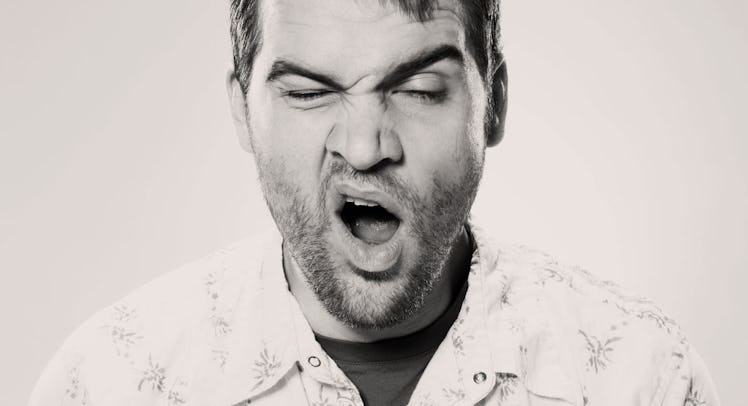Signs You’re Dangerously Sleep Deprived
Being a parent, you know the feeling of sleep deprivation. Here's how to know when you absolutely must refuel.

Back in college, pulling an all-nighter was a veritable right of passage. And looking back, you can’t recall any major fallout from those 24-hour, caffeine-fueled binges. Fast-forward a few years, and multiple nights of baby rocking, toddler training, and trying to fit what used to be your leisurely after-work routine into after-dark hours when the kids are in bed has left you exhausted. Sure, you know it’s not the greatest for your body. But how can you tell if you’re just tired or genuinely sleep deprived, and how bad is that, anyway? Here are the signs.
You’re Missing the Minimum by a Mile
The National Sleep Foundation recommends adults get between 7 and 9 hours of sleep every night. They broaden that range to suggest as little as 6 hours may be acceptable for some (but not many) individuals. Most new parents, however, find themselves nowhere near that mark: In fact, 76 percent say they feel sleep deprived, and one study estimated new parents lose six weeks’ worth of sleep during a baby’s first year. If it’s a struggle to wake every morning, and you can’t keep your eyelids open come 8 p.m., you know you are in the danger zone.
Your Decision-Making Is Sketchy
Did you get off at the wrong train stop this morning? Did you approve a work project that now looks like a total dud? “A critical difference between being tired and sleep deprived is that if someone is extremely sleep deprived, they will be cognitively impaired during the day,” says Kristen Knutson, Ph.D., assistant professor of medicine and a member of the Sleep, Metabolism and Health Center at the University of Chicago.
You’re Crankier Than Usual
Being a parent means bouts of irritability are to be expected. Kids push buttons, parents get annoyed — a tale as old as time. But when you can’t seem to shake that short temper and you find yourself snapping — at your spouse, your coworkers, the family dog — for no good reason, that’s one sign of serious sleep loss. “For sure, sleep deprivation negatively affects a person’s mood, making them irritable and cranky,” says Knutson.
You Can’t Recall
What’s the name of your new neighbor? When did your boss say he wanted that report? Did you pack the kids’ lunch this morning — or was that yesterday? Sleep deprivation takes a direct hit on your memory, making it difficult to recall even the most basic information. But impaired memory and learning are just two observable symptoms of sleep deprivation, says Knutson. Others are equally insidious, but less easy to spot, including a higher likelihood of cardiovascular and metabolic diseases, reduced reaction time, and increased risk of mortality.
You Crashed Your Car
“One study showed that driving while sleep deprived is the same as driving drunk,” says Knutson. In fact, the National Highway Traffic Safety Administration estimates that approximately 83,000 car crashes every year are due to drowsy driving. And it happens a lot quicker than you might think: “Pulling just one all-nighter leads to immediate impairments,” says Knutson. “Do not drive a car on zero sleep!” On the other hand, if you skimp on half-an-hour a few nights a week, it may take several days before you start to feel the impact. Either way, the solution is the same: Add a little extra sleep into your schedule wherever you can fit it in. The good news: Even a 15-minute power nap can significantly improve mental clarity along with your mood.